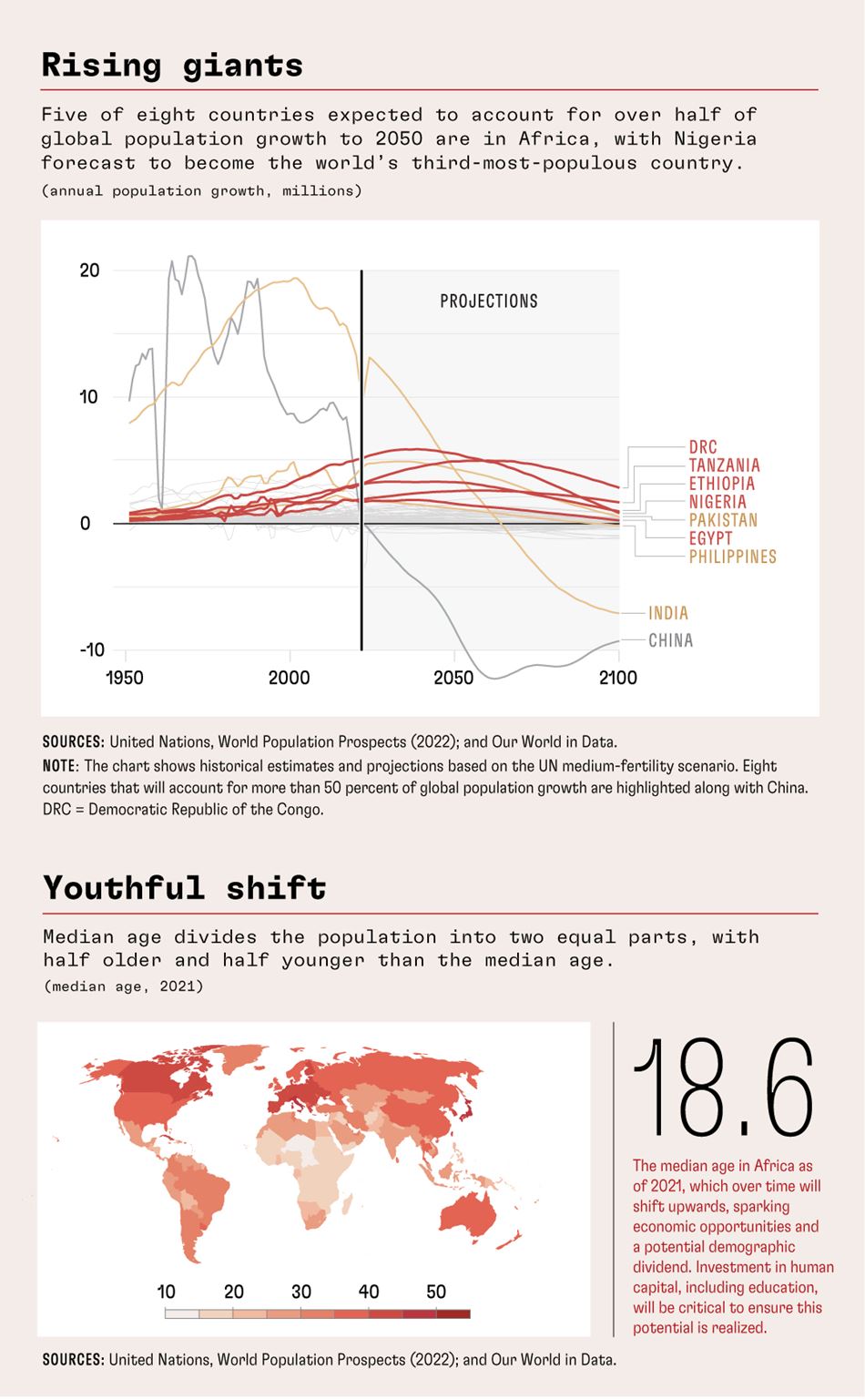Last November, the global population reached a significant milestone of 8 billion. More recently, in April, India overtook China as the world's most populous country.
It is Africa's booming population, however, that commands attention, with its demographic transformation set to reshape the continent and the world beyond.
Africa's population, estimated to be around 140 million in the year 1900, accounted for 9 percent of the world's population at that time; however, its share has since doubled. Fueled by a combination of falling mortality and some of the highest birth rates in the world, Africa's total population has increased tenfold and now stands at over 1.4 billion.
The United Nations projects that by 2050, Africa's population will reach close to 2.5 billion. Such a figure would mean that more than 25 percent of the world’s population will be African. Its population growth will slow thereafter, but Africa will remain by far the largest source of growth globally: its share of the world’s population is set to reach close to 40 percent by the end of the century.
The UN expects just eight countries to account for more than half of the increase in global population over the next three decades, and five of those countries are in Africa. The working-age population in these African countries, and in many others across the continent, will grow faster than any other age group.
This projected shift in population and potential demographic dividend for these nations could have profound economic effects and even alter the world order, with some of these states possibly emerging as new world powers.
 What to expect from South Africa's economy in 2024
What to expect from South Africa's economy in 2024


















